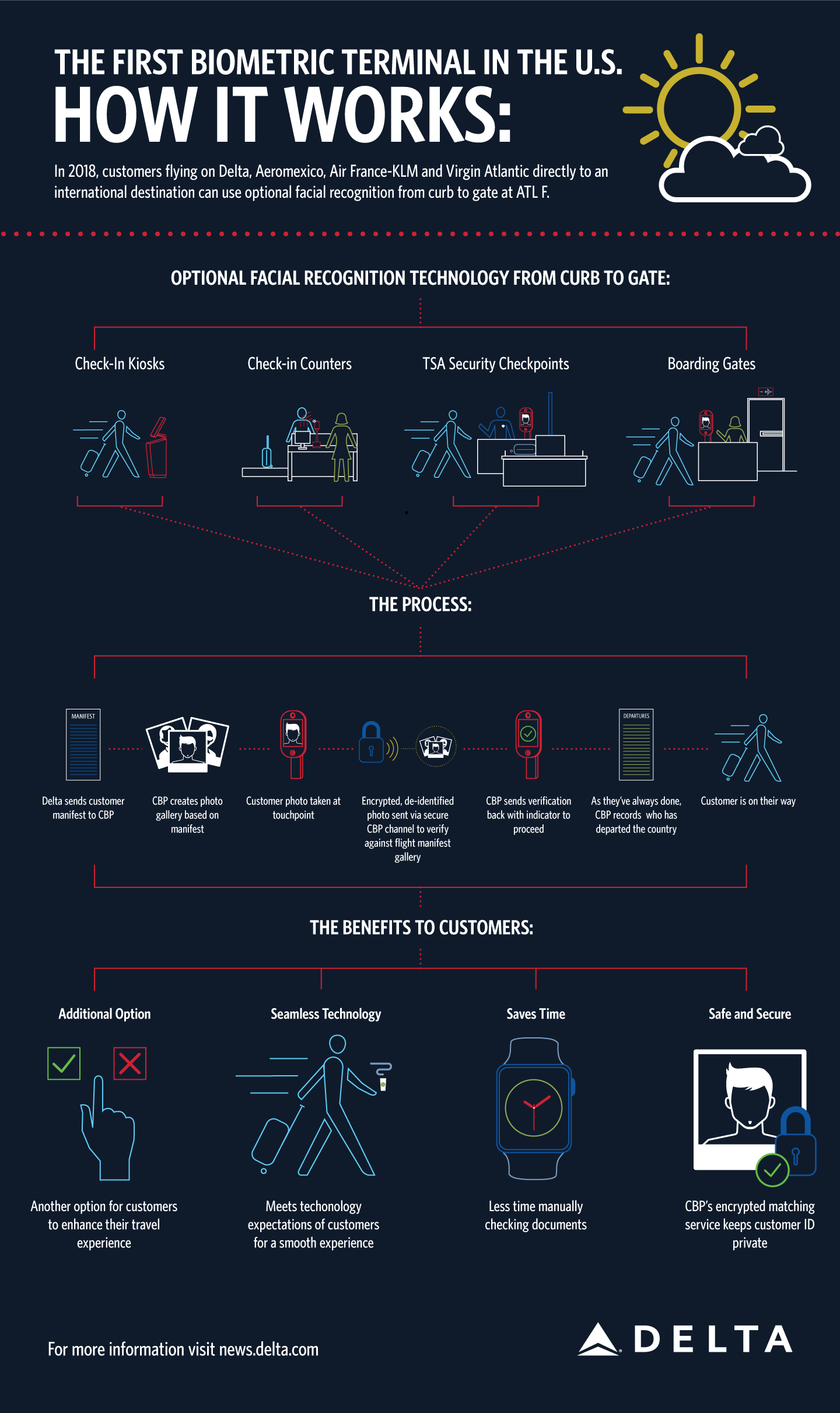Delta Airlines – competing on quality and winning on the price

Delta airlines has been one of the most innovative travel companies in the past few years. The company has implemented more than a dozen tech-enabled initiatives – more details on those below – aimed at four key goals: cost-cutting, increasing quality of customer service, matching demand-supply and removing friction from the customer journey (meaning purchases and upgrades here, not the turbulence during a flight). The first two categories allow Delta to compete profitably with other air carriers for the market share, but one can argue that those advantages may not last for long as others catch up and the technological gains are passed to consumers in the form of lower ticket fares and better quality. However, the latter two categories enable Delta to improve its business model by raising customers’ loyalty to the brand (especially via the usage of bonus miles) and effectively allowing to price-discriminate the consumers. Traditionally Delta has been competing on prices with other airlines by selling the large stock of commoditized non-durable goods (i.e. scheduled flight seats) and that often led to the prolonged periods of negative profits. Now the company may finally transition to a much more sustainable model of selling a tailored mix of different services on top of the very low cost basic good (i.e. simply an air travel from point A to point B).
Below is a brief description of the most significant initiatives breaking them into categories described above, although all of them contribute to the new integrated model as a whole (e.g. some quality-improving initiatives also reduce the costs and vice versa).
- Cost-cutting:
- facial recognition biometric terminals and biometric sky clubs check-in – Delta plans not only to streamline the process of getting on the airplane but also to lower the costs by reducing human labor and increasing turnover of the passengers through the airport. The technology is already saving an average of nine minutes at boarding, effectively raising utilization of Delta’s assets

- using mobile and crowdsourcing to deliver lost bags – by partnering with Roadie – a crowdsourcing on-the-way delivery service start-up – Delta plans to reduce the costs of delivering lost baggage back to the customers
- flight weather viewer app – providing its pilots latest weather forecasts and ML-based recommendations on avoiding the turbulence zones Delta is cutting the amount of weather-related flight delays while also improving the service quality
- Quality-improving:
- wireless inflight entertainment system – the ability to entertain customers during the flights not only increases perceived quality of the service but also allows Delta to charge additional fees for extra options (wireless internet, the newest movies on the screen, etc.) all at zero-cost marginal costs for the company. This opportunity is even more valuable for potential ad-commercialization given that Delta gains control over millions of eyeballs daily for the time of the flight.
- employee communication platform – empowering airport and cabin crew staff with a handheld device designed for the best use of proprietary communication platform improves decision-making capabilities of the employees and allows for collection of vast amounts of useful data, which can be later used for further operations improvements.
- RFID real-time bag tag tracking via its app – RFID chips on the baggage allows Delta to lower the chances to lose luggage while giving the customer ability to track their bags and quickly report any complaints.
- Matching demand-supply and removing friction from the customer journey:
- increasing flexibility of bonus miles payments – Delta is partnering with credit card issuers (like Amex) and simultaneously accepting Delta miles as effective currency for the upgrades, flights changes, or anything else that can be purchased with dollars. This initiative not only brings a new source of revenue for Delta from credit cards partnerships (contributions linked to credit card consumers spending currently account for $4bn, almost 10% of total revenue) but also increases customers’ loyalty as one may not use Delta’s miles for anything else except Delta’s services.
- Fly Delta app (already accounting for 50%+ purchases) – the ability to interact directly with the customer not only streamlines the purchasing process and increase loyalty but also allows Delta for real-time pricing and demand-supply matching based on the current available flights and seats options. For example, the ability to make a targeted offer of a free premium seat to a customer craving for comfort at a slight discount 5 minutes before the flight could not be previously realized with traditional purchasing process via sales agent or online.

Overall, the amount of real-time data on customers demand and available supply, predictive capabilities of customer behavior enabled by ML and big data, and ability to price multiple service packages all gives Delta power to serve the expanded base of customers at a maximum level with extremely low additional costs. For example, the system may now detect a high probability of an empty seat on a specific flight and immediately make it available in the stock for purchase; the customer can then purchase an extended deal of economy+ seat with in-flight internet and an extra bag – bringing the profit that Delta would have previously foregone completely.



Very interesting article! I wonder how long it will be before other airlines both in the US and abroad start adopting facial recognition and RFID technology. Once competitors enter the market with these seemingly low barriers to entry, Delta risks losing their competitive advantage. If they have a first-mover advantage on data collection and analysis, they may be able to gain a significant amount of market share.